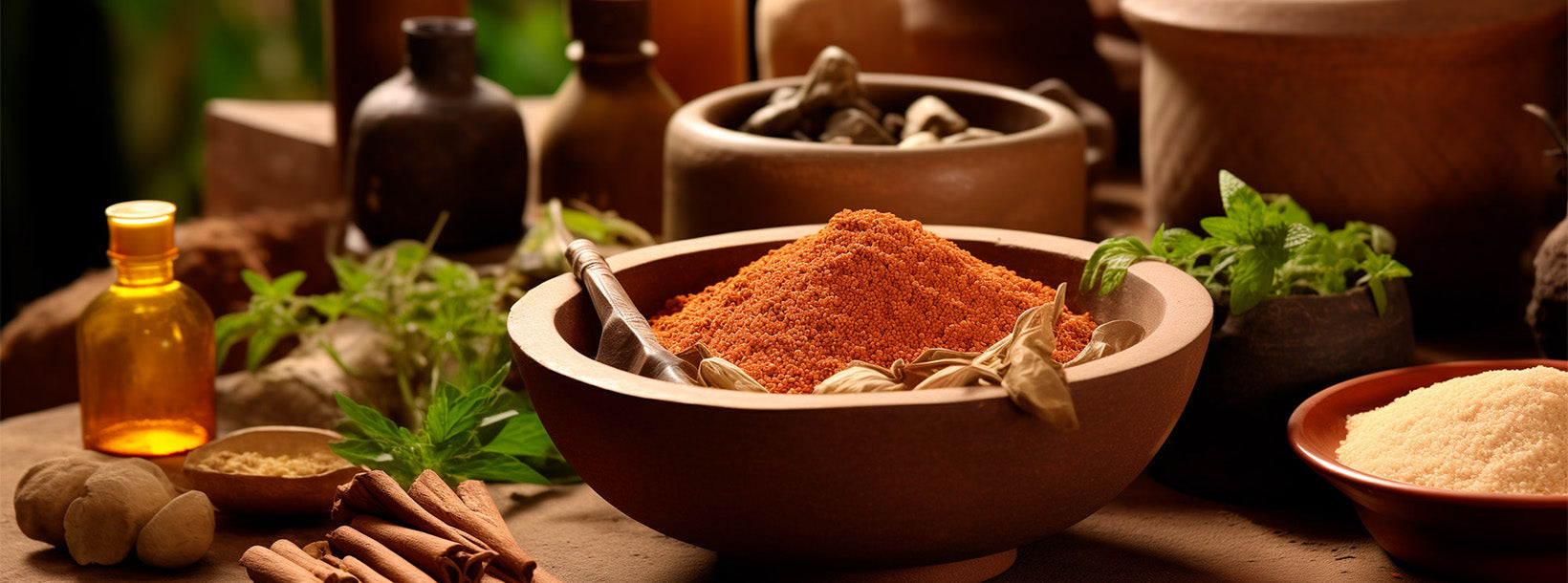
아유르베다와 허브
아유르베다와 약초 요법은 식물 기반 치료법을 이용한 자연 치유에 중점을 둡니다. 고대 인도 전통에 뿌리를 둔 아유르베다 의학은 식단, 생활 습관, 그리고 약초 치료를 통해 신체의 균형을 강조합니다. 약초 의학은 식물의 치료적 효능을 활용하여 다양한 질병을 치료하고 전반적인 웰빙을 증진합니다. 두 접근법 모두 전인적 건강과 예방을 목표로 합니다.
Bhaskaralavana Choorna
Bhaskaralavana Choorna is a traditional Ayurvedic formulation widely recognized and utilized in Sri Lanka for its digestive and carminative properties. Rooted in the ancient science of Ayurveda, which has long been integrated into Sri Lankan indigenous medicine, Bhaskaralavana Choorna plays a crucial role in managing a range of gastrointestinal ailments. The name itself is derived from "Bhaskara" (sun), symbolizing heat and digestive fire, and "Lavana" (salt), which points to its salty composition that aids in enhancing digestion.
In the Sri Lankan context, this choorna (powder) is often prescribed by Ayurvedic practitioners to treat conditions such as indigestion (agnimandya), bloating, loss of appetite, and flatulence. It contains a mixture of ingredients like rock salt, black salt, long pepper, ginger, and other aromatic herbs that are locally sourced and suited to the island’s tropical climate and dietary patterns. The use of Bhaskaralavana Choorna aligns with the Sri Lankan Ayurvedic approach that emphasizes balance among the three doshas (Vata, Pitta, Kapha), with this choorna particularly beneficial for pacifying Vata and Kapha doshas.
In rural Sri Lankan households, this formulation is sometimes kept as a home remedy, used after heavy meals or festive feasting to aid digestion. Its warming and stimulating nature makes it suitable for the predominantly rice-based Sri Lankan diet, which can sometimes lead to sluggish digestion if not balanced properly. Moreover, the practice of using such choornas reflects the continued relevance of Ayurvedic and Hela Wedakama (indigenous medicine) systems in everyday life, especially in areas where access to modern pharmaceuticals may be limited or where cultural preference leans toward natural remedies.










